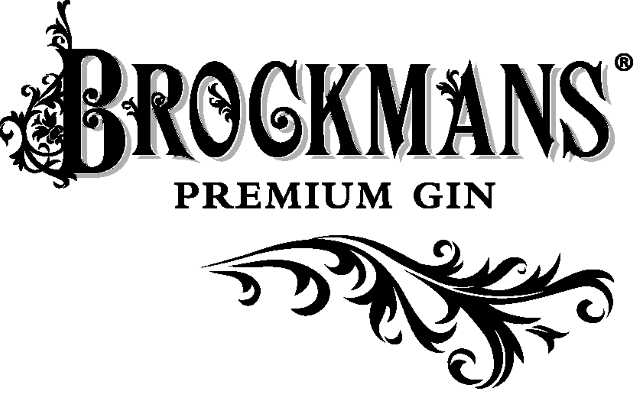Diversity and Inclusion in the Beverage Industry

At Cesium Group, we recognise that embracing diversity and inclusion within the beverage industry not only enriches company culture but also drives innovation and business success. This article explores how leading companies are championing these values to foster an environment where everyone has the opportunity to succeed.
Key Takeaways:
- Inclusive Hiring: Committing to equity in employment opportunities enhances innovation and meets broader market needs.
- Cultural Competency: Ongoing education on diversity issues promotes a supportive work environment.
- Empowered Voices: Encouraging contributions from all company levels enriches decision-making processes.
Discussion of Diversity and Inclusion Initiatives and Their Importance in the Beverage Industry
The call for diversity and inclusion is not a new concept, but its implementation in the beverage industry has taken on increased urgency as global markets become more interconnected. Diversity initiatives are not only about bringing together people from different backgrounds, genders, and races; they’re about leveraging these varied perspectives to spur innovation and respond more adeptly to market demands.
The importance of such initiatives is multifold. Firstly, they lead to broader consumer insight. A diverse team is more likely to understand and predict the needs of a diverse clientele, thereby designing products that appeal to a broader audience. This connection between workplace diversity and enhanced market reach is supported by evidence suggesting that companies with more diverse workforces are better at innovating and opening new markets.
Secondly, inclusion initiatives are crucial for talent retention. In an industry as competitive as beverages, retaining top talent is paramount. Companies that cultivate an inclusive culture make all employees feel valued and seen, which decreases turnover rates and builds a loyal workforce. For instance, initiatives such as mentoring programs, employee resource groups, and inclusive leadership training can create pathways for growth and advancement for all staff members, not just a select few.
Moreover, diversity and inclusion practices directly impact a company’s reputation. Consumers increasingly prefer brands that demonstrate ethical practices and social responsibility. A commitment to diversity can enhance a company’s image, attract like-minded consumers and employees, and differentiate it from competitors.
Furthermore, fostering an inclusive environment encourages safety and well-being among employees. When people feel they can bring their whole selves to work without fear of discrimination or bias, they are likely to feel safer and more committed to their jobs. This psychological safety is critical for fostering innovation, as employees feel confident to express new ideas and take creative risks.
Strengthening Strategies for Diverse Teams
Implementing effective diversity and inclusion strategies requires more than just intent; it demands continuous action and evaluation. One approach is the establishment of diversity task forces or committees that are empowered to set goals, track progress, and hold the company accountable. Such groups can also spearhead initiatives like community outreach programs to build bridges with diverse talent pools.
Another strategy is to embed diversity objectives into corporate objectives. This alignment ensures that every department understands their role in fostering inclusivity and is measured against specific diversity and inclusion metrics.
Examples of Successful Initiatives
Several leading beverage companies have already set impressive benchmarks in diversity and inclusion. For example, global corporations like Diageo and Coca-Cola have been recognised for their efforts in creating diverse leadership teams and inclusive work environments. These companies understand that diversity and inclusion are not just HR objectives but strategic business imperatives that drive growth and innovation.
Diageo, for instance, has received accolades for its comprehensive policies on gender diversity, ensuring that women hold significant leadership positions within the company. Similarly, Coca-Cola operates under the principle that an inclusive culture that embraces diversity in all its forms performs better. By championing inclusive marketing campaigns and supporting various community initiatives, Coca-Cola resonates with global audiences, thereby strengthening its market position.
Leveraging Diversity for Innovative Solutions
The direct correlation between a diverse workforce and enhanced innovation cannot be overstated. Diverse teams bring a mix of experiences and perspectives that lead to creative problem-solving and innovation. In the beverage industry, where consumer preferences are continuously evolving, the ability to innovate quickly is crucial. Diverse teams are more adaptable and can pivot more readily in response to changing consumer trends.
Creating an Equitable Environment
The path toward a truly diverse and inclusive environment involves more than hiring a multicultural staff—it’s about creating equitable opportunities for all employees to grow and thrive. Initiatives such as transparent promotion tracks, equal pay audits, and support networks for underrepresented employees are crucial. These measures ensure all team members, regardless of their background, have the ability to ascend to leadership positions and influence the company’s direction.
Moreover, fostering an inclusive culture means addressing and mitigating unconscious bias throughout the company. Many beverage companies are investing in training programs that help employees at all levels recognise and challenge their biases. Such programs are not just a one-time event but a continuous process that contributes to a culture of ongoing learning and sensitivity.
Building Community Connections
Engagement with the broader community is another effective way to enhance diversity and inclusion efforts. By partnering with local and international organisations that support underrepresented groups, companies can improve their recruitment strategies and build a broader talent pipeline. These partnerships often provide community members with training and development opportunities that prepare them for a career in the beverage industry, thereby supporting the community and the company’s diversity goals simultaneously.
Leveraging Technology for Inclusion
Technology also plays a pivotal role in advancing diversity and inclusion. New tools and platforms enable companies to remove biases from their hiring processes, develop more inclusive marketing campaigns, and gather data to track their progress in real-time. For instance, AI-driven analytics can provide insights into diversity metrics and help identify areas where the company can improve. This technology ensures that the efforts are not just well-intentioned but also well-informed and targeted for maximum impact.
The Role of Leadership in Championing Diversity
Leadership commitment is crucial to the success of diversity and inclusion initiatives. When company leaders actively participate in and advocate for these programs, it signals to all employees that these values are important. It’s essential for leaders to set the tone by participating in training, engaging with diverse teams, and holding themselves accountable for the company’s diversity goals.
Successful leaders understand that diversity goes beyond surface-level changes; it requires a deep commitment to altering corporate culture. This might involve reevaluating company values, mission statements, and even business objectives to ensure they align with the principles of diversity and inclusion.
Monitoring Progress and Maintaining Accountability
Finally, accountability mechanisms must be put in place to ensure that diversity and inclusion efforts are more than just PR moves. Regular reporting on diversity statistics, employee feedback surveys, and audits of company practices help maintain transparency and accountability. These measures not only help track progress but also highlight areas for improvement, ensuring that the company continues to move forward and adapt its strategies in meaningful ways.
Conclusion
At Cesium Group, we are dedicated to fostering diversity and inclusion within the beverage industry. By championing these values, we not only enhance our own culture but also contribute to the broader goal of an inclusive global market. We encourage other companies to join us in this mission. For further details on how we can help your company thrive through diversity, please get in touch with us.
FAQs
What are the benefits of diversity in the beverage industry?
Diversity leads to enhanced creativity, a better understanding of consumer needs, and improved business performance.
How can companies in the beverage industry promote inclusion?
Companies can implement inclusive hiring practices, provide diversity training, and encourage participation from all levels of the organisation.
What is the impact of inclusion on company culture?
Inclusion increases employee satisfaction, fosters mutual respect, and enhances team cohesion.
Can diversity improve company performance?
Yes, numerous studies link diversity in teams to improved financial outcomes and greater innovation.
How does Cesium Group support diversity and inclusion?
Cesium Group supports diversity through specialised recruitment strategies, leadership training, and internal policies that promote inclusivity.



















